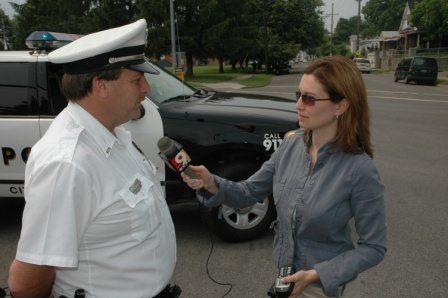Police Terminology
Law enforcement has a language all its own, and without a translator civilians can sometimes feel left out of the conversation. Here are a few simple terms worth remembering.
Affidavit – a written statement of facts given under oath.
Bond – money or other security posted with the court to guarantee an appearance.
CI – confidential informant.
City – referring to officers who work for city police departments. (“The city will handle that case). The same is true for county and state.
Civil case – a private lawsuit, not one brought by the state.
Complaint – a statement given under oath where someone accuses another person of a crime. Officers may also refer to a call as a complaint. (“Man, I caught two loud music complaints in one hour last night.”)
Complainant – person who accuses another. Or, someone who called the police. (“Go to 1313 Mockingbird Lane. The complainant’s name is Herman Munster.”)
Cook – make crack cocaine or methamphetamine.
Cooker – person who makes crack cocaine or methamphetamine.
Hit – outstanding warrant, or stolen. “We got a hit on that car.”
Hook ’em Up – to handcuff a prrisoner.
Hot – stolen.
Information – Paperwork (document) filed by a prosecutor that accuses someone of a crime.
Knock and announce – requirement that officers knock on the door and announce their presence when serving a search warrant. (Police. Search warrant!)
OIC – officer in charge.
PC – probable cause. (“Do you have enough PC to get a warrant?”)
Plastic – credit card.
Priors – previous arrests.
Ride the chair – die by electrocution.
Ride the needle – Die by lethal injection.
Roll up – arrest someone.
Stripes – a sergeant’s patch or insignia.
T-Bone – broadsided in an crash.
Verbal – a warning. (“I gave him a verbal, but next time his butt’s going to jail.”)
Visual – able to see something or someone. (“Have you got a visual?”)
UC – undercover officer.
Walk – to get off a charge. Released without a record.
Write – issue a summons.
“Did you write him?”
“Yep. 87 in a 55.”
VIN – Vehicle Identification number. (“Run the VIN on that car to see if you get a hit.”)
* * *
*Our wonderful web host and site designer, Byte Size Media, has decided to pull the plug on this aspect of their operations. Therefore, we are in the process of switching web hosts, web designers, and servers. Please bear with us during the change. We hope to see a smooth, incident-free switch, but you never know what to expect. This includes my website as well as the Writers’ Police Academy website.
Since we’re making this move we’ll also be upgrading a few things. So look out for a few faulty buttons, dials, and knobs along the way! I think everything will be fine, but these poor folks have to deal with me and my goofs, which they’ll see as they begin to go through the many files associated with the GYS.
We wish the folks at Byte Size all the best. Thanks so much for all you’ve done for us over the years. We couldn’t have done it without you!








Another post to bookmark for realistic dialogue. Of course, then we have to figure out clever and smooth ways to ‘translate’ for readers. 🙂
Terry
Terry’s Place
Romance with a Twist–of Mystery
Lee, what a great list and the examples are priceless.
Wishing you a smooth move.
You know, Michael, in all my years in law enforcement I’d never heard the term unsub used by cops. I actually first heard it in a movie.
Lee you always make learning fun ! It is why they ask you to write those Castle reviews. Always fun to have time to read your site. Good luck with the new webhost change.
Okay, I feel better now. I only had an FBI agent use the term, not a local police officer.
Michael – Not so much with local departments, but probably so with the FBI.
Is “unsub” standard terminology?